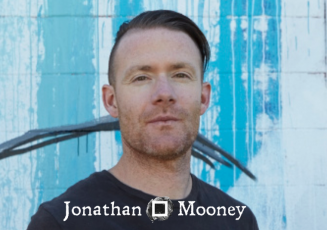 Jonathan Mooney tried to fit into the box of normalcy. It cost him his education, his sense of self, his friendships and nearly his life. In his opinion, “Normal Sucks.”
Jonathan Mooney tried to fit into the box of normalcy. It cost him his education, his sense of self, his friendships and nearly his life. In his opinion, “Normal Sucks.”
Jonathan lives with dyslexia and ADHD, and he’s dedicated his life to connections with other people who have been treated as not normal. His latest book, Normal Sucks: How to Live, Learn, and Thrive Outside the Lines, explains the shame and waste in the assumption that normalcy is a goal to strive for.
“I want you to know, if those judges of normality wound you, like they have me and so many others, how to stitch yourself up and fight for a world that is not governed by those judges.”
Jonathan Mooney in conversation with Josh Elwood and Adrienne Lauby.
With technical support from Rod Akil, Denny Daughters, Sheela Gunn-Cushman and Lucretia Burton.
———————————————————
I’m a dyslexic writer, speaker, and do-gooder who did not lean to read until 12 years old. I faced a number of low expectations growing up—was told I would flip burgers, be a high school dropped out and end up in jail. Needless to say there hopeful prophecies didn’t come to pass. Opposed to being a high school drop out I became a college graduate from Brown university with an honors degree in English lit; instead of flipping burgers I ended up writing books, the first of which I wrote at the end of the 23 as an undergrad; And instead of becoming an inmate I become an advocate creating organizations and initiatives that help people who get the short end of the stick.
I’ve won many awards for all of this —The Harry S. Truman fellowship for public services, Finalist for a Roads Scholarship, LA Achievement award from The Lab school of Washington where I shared the stage with Vice President Joe Biden—and been featured in/on HBO, NPR, The New York Times, NBC, Fast company, and many other media outlets. But what I’m most proud of is not that I proved some people how doubted me wrong—but that I proved the many people—my mom, a teacher named Mr. R, my wife Rebecca—right, not just about my potential but about the potential for all of us who live and learn differently.

